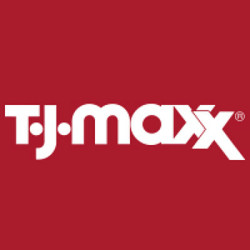Top Class Actions’s website and social media posts use affiliate links. If you make a purchase using such links, we may receive a commission, but it will not result in any additional charges to you. Please review our Affiliate Link Disclosure for more information.

Plaintiffs Elizabeth Adam and Rebecca Foley say that manufacturers of sheets and other bedding have been falsely labeling these products with higher thread counts than they actually have. These higher thread counts deceive purchasers into thinking the products are of a higher quality than they actually are, the plaintiffs claim.
Adam and Foley seek to pin responsibility for the alleged deception on defendant The TJX Companies Inc., the company that runs TJ Maxx retail stores. They also name as defendants India-based textile manufacturer Creative Textiles and North Carolina-based importer AQ Textiles.
Higher thread counts command higher prices, since consumers understand that a higher thread count indicates a softer, more comfortable sheet, according to the lawsuit. The plaintiffs cite an ABC News report that said a 300-count sheet can run $55, while one set labeled as 600-count (but which tested as 300-count) was priced at $180.
According to the plaintiffs, the defendants have been overstating their products’ thread count by counting the number of plies in each strand of yarn used to make the sheet fabric, instead of counting the yarn itself.
The fabric making up these sheets is made of multi-ply yarn that itself contains multiple filaments. The defendants allegedly count each filament within the yarn as a single thread, resulting in a higher thread count.
The plaintiffs say this way of counting threads is contrary to standard industry practice. They quote standards published by the American Society for Testing and Materials, which say that a thread count should be the number of yarns within a given area, regardless of whether the yarn is single-ply or multi-ply.
The FTC says the practice of presenting the number of plies as the thread count “would likely mislead consumers about the quality of the product being purchased.” In a letter to the National Textiles Association, the FTC says it may be less deceptive to use labeling such as “300 thread count, 2 ply yarn” instead of “600 thread count.”
Both Adam and Foley say they bought sheet sets labeled with thread counts of 700 and 800, respectively, from TJ Maxx stores in Massachusetts. The plaintiffs allegedly relied on the advertised thread counts when they chose to buy those particular sheet sets.
But upon closer inspection, the plaintiffs say their sheets’ actual thread counts were far below the advertised counts. When measured according to industry standards, Adam’s purportedly 700 thread count sheets turned out to have only a 245 thread count. Foley’s supposedly 800 thread count sheets had an actual thread count of only 230, they claim.
Adam and Foley propose to represent a plaintiff Class that would cover all persons in the U.S. who purchased bedding from the defendants that was labeled with thread counts higher than the product’s actual thread count. They alternatively propose one subclass each for all 50 states and the District of Columbia.
They seek a court order barring TJ Maxx and the other defendants from making and selling bedding and linens advertised with incorrectly inflated thread counts. They also seek awards of actual, compensatory and exemplary damages, restitution and disgorgement of profits, and reimbursement of attorneys’ fees and costs of this litigation.
Adam and Foley’s attorneys are Erica Mirabella of Mirabella Law LLC, Charles LaDuca, Jennifer E. Kelly and Matthew Prewitt of Cuneo Gilbert & LaDuca LLP, Michael McShane of Audet & Partners LLP, and Charles Schaffer of Levin Sedran & Berman.
The TJ Maxx False Thread Count Class Action Lawsuit is Elizabeth Adam and Rebecca Foley v. The TJX Companies Inc., et al., Case No. 1:17-cv-11260, in the U.S. District Court for the District of Massachusetts.
ATTORNEY ADVERTISING
Top Class Actions is a Proud Member of the American Bar Association
LEGAL INFORMATION IS NOT LEGAL ADVICE
Top Class Actions Legal Statement
©2008 – 2024 Top Class Actions® LLC
Various Trademarks held by their respective owners
This website is not intended for viewing or usage by European Union citizens.















39 thoughts onTJ Maxx Class Action Says Sheets Labeled with Inflated Thread Counts
Add me please.
Pls add me to the list!!!
Add me
TJ Max’s sheets I purchased never felt like other brands with a noted high thread count. Know I know that I was mislead and the actual product WAS inferior to the advertised brand quality! Please add me.
Please add me
add me please
I was wondering just why my sheets consistently did that. I just told myself to buy new ones